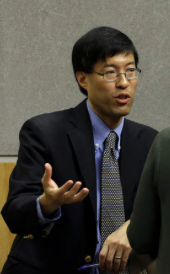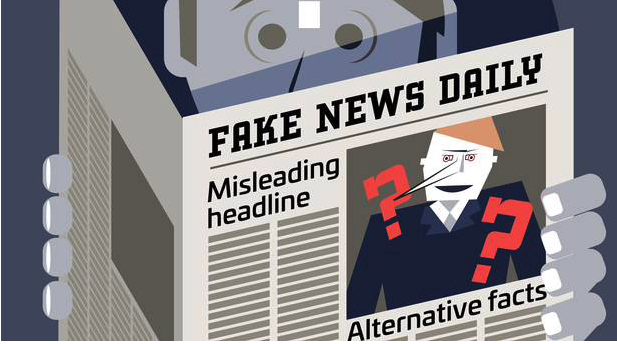CALIFORNIA CONSIDERS MONITORING ONLINE SPEECH
Editor’s Note: California may set the tone for a national conversation and perhaps even set of laws addressing what the state’s lawmakers deem “false information … spread online.” Since political motivation and ideology often underly what one deems “fake news” this proposed move should be especially concerning for those who truly cherish free thought and expression. As the article below suggests, Facebook’s recent nod to corporate media outlets as an antithesis to “fake news” has demonstrated how such an effort is likely to be instituted in California and elsewhere. The Electronic Frontier Foundation argues that the law is dangerous because it places the governing body in a position to determine what is true and false.
The proposed speech legislation was introduced by California State Senator Richard Pan, a practicing pediatrician and the principal lawmaker behind SB277, the state’s mandatory vaccination law. A voter-driven campaign in 2015 to have Pan ousted from office was not successful.

CBS13 Sacramento reports:
California is considering creating a “fake news” advisory group in order to monitor information posted and spread on social media.
Senate Bill 1424 would require the California Attorney General to create the advisory committee by April 1, 2019. It would need to consist of at least one person from the Department of Justice, representatives from social media providers, civil liberties advocates, and First Amendment scholars.
The advisory group would be required to study how false information is spread online and come up with a plan for social media platforms to fix the problem. The Attorney General would then need to present that plan to the Legislature by December 31, 2019. The group would also need to come up with criteria establishing what is “fake news” versus what is inflammatory or one-sided.
The Electronic Frontier Foundation opposes the bill, calling it “flawed” and “misguided.” The group argues the measure would make the government and advisory group responsible for deciding what is true or false. It also points out the First Amendment prevents content-based restrictions, even if the statements of “admittedly false.”
A recent study by Massachusetts-based MindEdge Learning was conducted with 1,000 young adults, ages 18 to 31-years-old. According to MindEdge’s nine-question survey, 52 percent of the respondents incorrectly answered at least four questions and received a failing grade. The number of young adults who could detect false information on the internet went down by all of the group’s measures. Only 19 percent of the college students and grads scored an “A” by getting eight or nine questions correct. That number is down from 24 percent in last year’s survey.
Facebook recently did away with its “Trending News” section – calling it outdated and unpopular. That section was criticized in the past after reports came out claiming the human editors were biased against conservatives. After Facebook fired those editors, the algorithms it replaced them with couldn’t always distinguish real news from fake.
After the 2016 election, Facebook founder Mark Zuckerberg denied that fake news spread on the social site he oversees influenced the outcome- calling the idea “crazy.”
A previous bill, AB 155, would have required schools to teach students the difference between “fake news” and “real news.” It died in the Assembly Committee on Appropriations.
The current bill SB 1424 was authored by Senator Dr. Richard Pan. It passed the Senate on May 30, 2018 by a vote of 25-11. It will be heard by the Assembly Arts, Entertainment, Sports, tourism, and Internet Media Committee on Tuesday.
Please follow and like us:




Pan can stick his bill up his arse. He's the only one telling lies and should be held accountable according to his own proposed law.